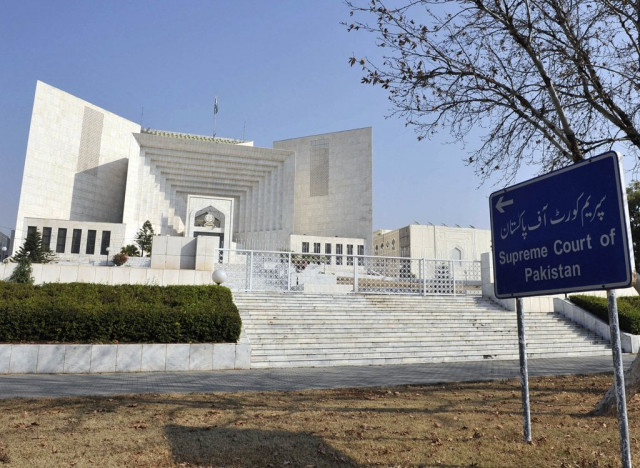AGP’s views on Article 63-A sought to bring ‘stability’
CJP says there is stress and flux in country; ECP rejects references seeking applicability of law on defecting MNAs

The Supreme Court on Wednesday asked the new attorney general for Pakistan, Ashtar Ausaf, to present his views as to whether or not the bench could interpret Article 63-A in a way that might bring political stability in the country. Whether Article 63-A was just decoration or it had a purpose, the bench inquired from the top legal officer.
The court was hearing a presidential reference seeking the interpretation and scope of Article 63-A.
Separately, the Election Commission of Pakistan (ECP) has rejected references seeking applicability of Article 63-A on the defecting MNAs.
Commenting on the present political situation, Chief Justice of Pakistan Umar Ata Bandial noted that there was stress, flux and instability in the country.
Read more: CJ justifies suo moto notice over Suri’s ruling
During the hearing, the CJP also observed that though defection was a serious menace in parliamentary politics, imposing a lifetime ban on defecting lawmakers would be a harsh punishment.
Justice Munib Akhtar, who is part of the bench hearing the case, posed a question as to what was the purpose of Article 63-A.
“Perhaps the purpose behind this article was that defection should never happen in the country,” he added.
Referring to Article 17 of the Constitution, Justice Akhtar noted that fundamental rights belonged to political parties. He added that defection was a death knell for political parties and parliamentary form of democracy. “If a lawmaker wants to make decision because of their conscience, then they should resign.”
The bench asked Supreme Court Bar Association (SCBA) counsel Mansoor Awan to satisfy it as to whether or not defection was against the parliamentary system.
When the counsel tried to justify defection of lawmakers in the interest of system by producing material of foreign countries, Justice Ijaz-ul-Ahsan, who is also on the bench, noted that there was awareness in those states.
Also read: Aftermath of Supreme Court's ruling on no-trust move
“Such maturity is not being witnessed in the democracy of Pakistan. We are comparing apples with oranges,” he added.
Justice Ahsan also noted that there was consensus that defection was wrong.
SCBA counsel Awan told the court that de-seating was appropriate for whoever defected on the basis of their conscience, but those who defected in return of monetary benefits must be punished.
He added that the Constitution gave lawmakers the right to vote according to their conscience.
PML-Q attorney Azhar Siddique said the purpose of Article 63-A was to restrain lawmakers from defection, adding that a constitutional amendment was also made to prevent the practice.
He recalled that PTI lawmakers had violated the party policy on April 16 in the Punjab Assembly and voted in favour of Hamza Shehbaz to elect him as the province’s chief minister.
The CJP, however, observed that the matter pertaining to defected lawmakers was pending with the Election Commission of Pakistan (ECP), and the bench could not comment on the references forwarded to the electoral body.
The AGP told the court that he would present his stance next week. He, however, said the party head had the discretion to apply Article 63-A to the lawmaker or not.
The hearing was adjourned till Monday wherein the PML-N lawyer would present his arguments. The proceedings on presidential reference are expected to end next week.
The ECP’s 14-page order on the matter read: “We are of the unanimous view that declarations/references have not been proved in terms of Article 63-A(1)(a) of the Constitution of Islamic Republic of Pakistan, 1973, hence answered in negative."
The order further stated that perusal of record revealed that the alleged defectors had neither resigned, nor made any statement before the media or any other forum that they had joined any other parliamentary party.
The commission noted that it was a settled law that the issue of defection entailed penal consequences resulting in de-seating of the parliament member. It further observed that it was a well-settled principle of interpretation that a penal provision should be construed strictly and its scope should not be extended unless it was to be required by the clear language used therein or by necessary intendment.
"In the light of arguments of the learned counsel for the parties and material available before us, we have arrived at [the] irresistible conclusion that the petitioner … has failed to substantiate the factum of defection as mentioned in the declaration in compliance with the provisions of Article 63-A(1)(a) of the Constitution."
(With input from agencies)



















COMMENTS
Comments are moderated and generally will be posted if they are on-topic and not abusive.
For more information, please see our Comments FAQ